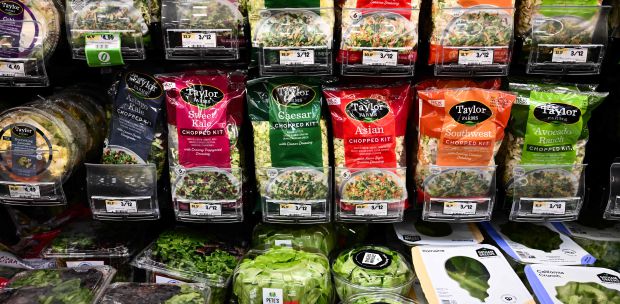RISING food prices are a concern for many people, especially the poor. What many find disturbing is that no one has offered real solutions.
Food producers blame the rising cost of inputs, mostly imported.
Restaurants put the blame on rising labour and rental costs. Some blame consumers for not sending the right signals to food businesses.
The government harps on food businesses for not adhering to price ceilings.
Is the overemphasis on price control the real cause for the chaos?
Economists seem to think so. In a TV interview, an economist suggested that our food prices are not really high compared with those in regional countries.
The real issue is affordability. Our income has not kept pace with living costs.
An example is the average salary of graduates, which has not increased by much. A fresh graduate is paid about RM2,500 a month.
Forty years ago, we were paid about one third of that amount. But 40 years ago, a basic car cost only about RM5,000, which was about less than a year's income.
And single-story terrace houses could be bought for slightly more than that.
I remember a bungalow in Ukay Heights, Ampang, was selling at RM30,000. It is different now.
Cars and houses are no longer within reach of fresh graduates. They cannot afford them because their pay has not kept pace with rising prices.
Unlike food, there are no price controls for cars and houses, whose prices are determined by supply and demand.
However, there was a time when the prices of Proton and Perodua cars were subject to price controls using taxation.
And look at what happened to Proton.
Though they were selling well locally, they could not penetrate foreign markets.
The price controls could not motivate quality improvements.
Now that there are no more price controls, Proton and Perodua are performing better. There is the motivation to invest in good design and quality.
Freeing the market has helped create the change. Of course, partnering with a global player is a big help too.
Why can't we apply the same model to the food business? Economists think the frequently changing price ceiling on food, such as chicken and egg, does not motivate investments in the business.
For that matter, who would when your output price is controlled while the price of inputs keeps changing and rising according to market forces.
It does not make business sense.
If at all, it encourages the emergence of monopolies and cartels, which makes the situation much worse.
Most developed economies do not practise price controls. They leave that to market forces.
Whatever intervention they do is limited to improving accessibility through supply improvement.
What they cannot produce, they source from outside. As costs and margins are more stable and manageable, profitably will improve.
Better profitability leads to higher wages, which will boost consumer affordability, creating a virtuous cycle towards a high-income nation.
It is clear that imposing a price ceiling contradicts the high-income nation that we aspire.
We must remember that high income also entails high costs.
If we continue suppressing costs through price controls, it would be difficult to attract investments.
A better way to drive investments in the food business and achieve food security is to focus on creating efficient food accessibility through reliable supply and, at the same time, empower consumer affordability through higher income.
That way, we stand a better chance becoming a high-income nation.
The writer is a professor at the Tan Sri Omar Centre for STI Policy, UCSI University





